Spencer's recent articles

1 February 2025
Youth Justice: punishment or prevention?
In the last three years there has been a blizzard of new laws with respect to youth justice across Australia. While some laws have been welcome, a substantial number have been retrograde. In this category, laws with respect to young children have been the most controversial. This fact has attracted critical attention from a number of respected international and non-governmental human rights organisations.
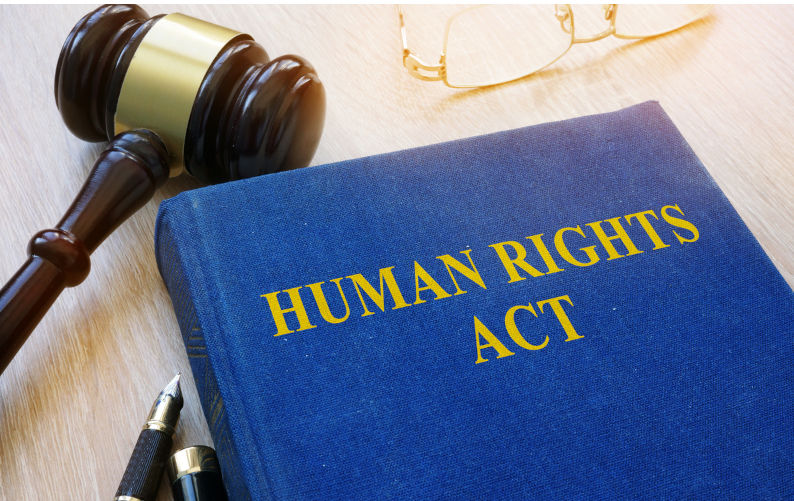
16 July 2024
Federal parliamentary committee presents a decisive case for an Australian Human Rights Act
Parliament’s Joint Committee on Human Rights has tabled a report that makes a persuasive argument for comprehensive legislation to protect Australians’ fundamental human rights. Its Inquiry into Australia’s Human Rights Framework (2024) identifies a catalogue of deficiencies in the nation’s disaggregated systems of human rights protection. The report provides a new and compelling case for Parliament to revisit the idea that Australia should join every other Western nation in providing comprehensive legal protection to combat the widespread infringement of human rights.

28 May 2024
David McBride’s trials and travails
Last week, David McBride, the Military Officer who disclosed tranches of confidential documents with respect to the behaviour of Australian Defence Forces during the nation’s involvement in the wars in Afghanistan, was sentenced to six years imprisonment. McBride believed that in making these disclosures he had acted appropriately and correctly in the public interest.

15 December 2023
The indefinite detention of people seeking asylum in Australia is at an end
In all of the heated, political imbroglio that has surrounded the discussion of the release of some 150 asylum seekers from immigration detention recently, one crucial perspective has passed almost without public discussion. It’s really important. It’s about the relevant constitutional law.
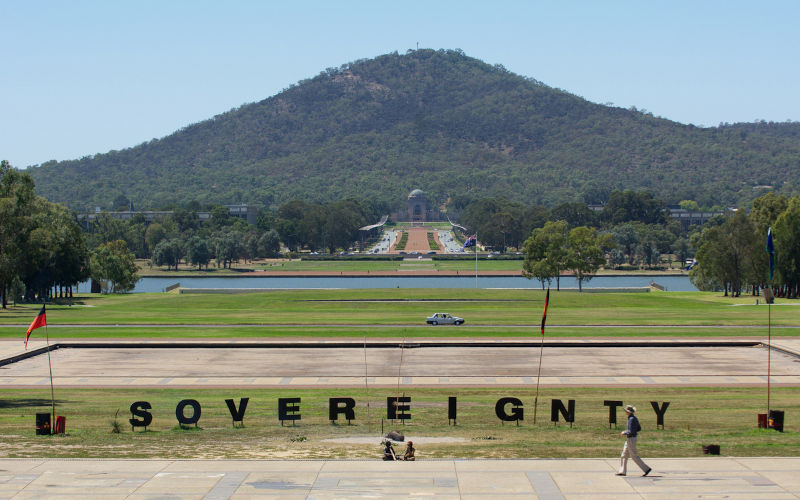
27 September 2023
The Constitution, sovereignty and The Voice
One question relating to the upcoming referendum on ‘The Voice’ that has recently come to prominence concerns the question of sovereignty. Who or what is ‘sovereign’ as the term is applied to the governance of Australia? Is there any such thing as Indigenous sovereignty? Might it be said that in Australia sovereignty is or could be shared? Might First Nations people be sacrificing some part of their sovereignty if a Voice to parliament is endorsed at the referendum? None of these questions affords an easy answer.
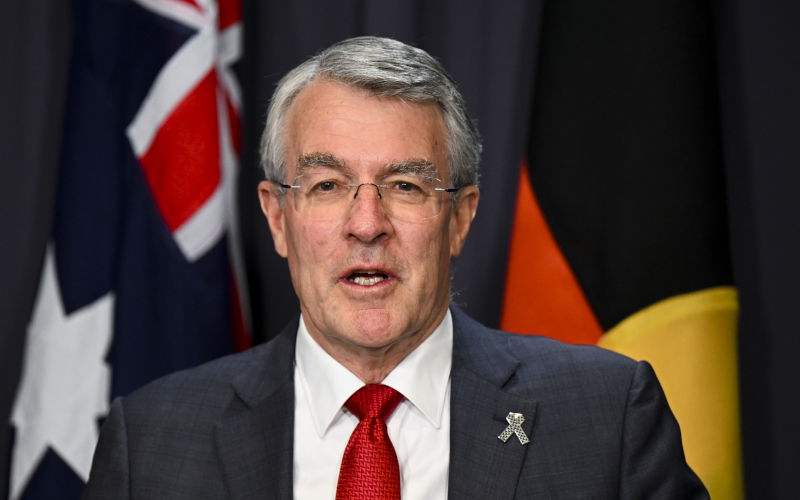
27 December 2022
Abolishing the Administrative Appeals Tribunal: An unfortunate but necessary development
It is a sad indictment upon Executive government, that a costly charade is exactly what the AAT had become. The level of Executive interference with the constitution and operation of the tribunal had reached such a level that it had almost destroyed the tribunal’s reputation for impartial and independent decision-making.
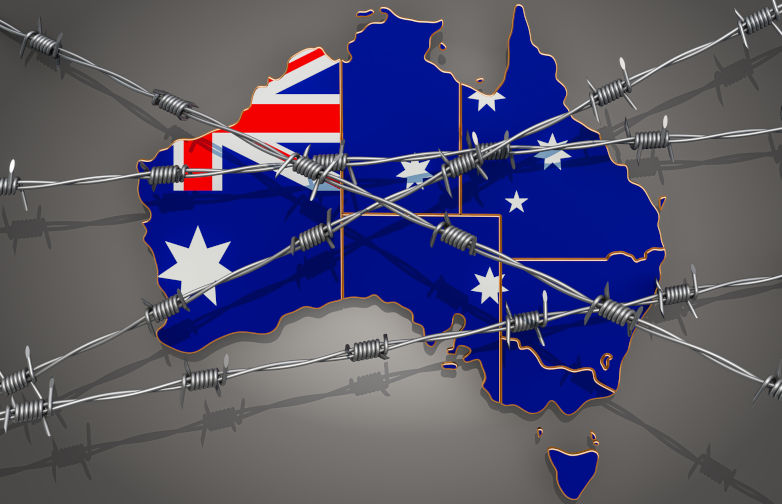
6 December 2022
Australia excoriated over refusal to allow UN torture committee to visit places of detention
Australia is a party to the United Nations Convention Against Torture. Pursuant to the terms of the Convention, the UN has established a Sub-Committee for the Prevention of Torture (SPT). The Committee’s mandate is to prevent torture, cruel, inhuman or degrading treatment. It pursues that mandate through visits to member states. Member states are obliged to allow the SPT unannounced and unhindered visits to places throughout a country where people are deprived of their liberty. Australia has just refused to permit the Sub-Committee to undertake its mandate here.

17 July 2022
The unconscionable prosecution of Bernard Collaery was an assault on the values Australia holds dear
Last week Attorney-General Mark Dreyfus put an end to Canberra lawyer Bernard Collaery’s criminal prosecution.
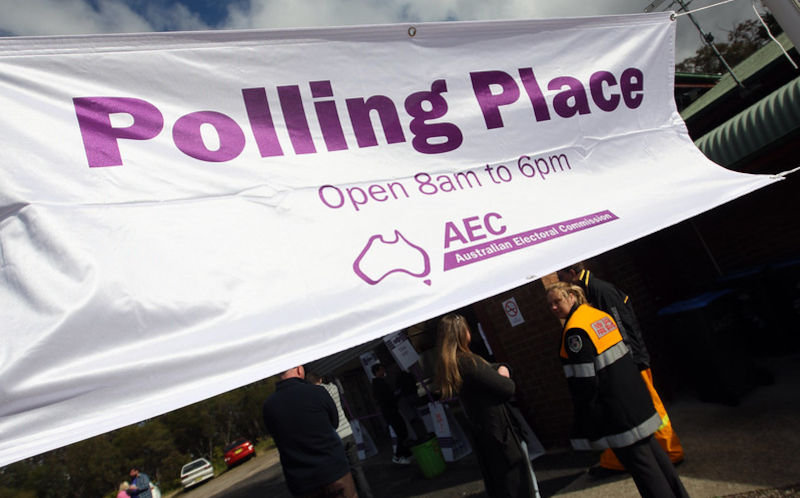
20 May 2022
Disinformation and misinformation: An electoral plague
While the major parties contest the election with competing policies and competing claims, an altogether different political contest is in play. This is the contest, across the political spectrum, between competing half-truths and deceptions. Ever since the Federal election in 2016, electoral disinformation and misinformation, particularly that communicated through social media, has become a blight upon Australia’s electoral landscape.

10 May 2022
Morrison on a Federal Integrity Commission is not credible
The Prime Minister has broken his promise to adopt legislation establishing a Federal Integrity Commission. The decision is not all that surprising. It has been clear for a long time that the Government does not favour a federal anti-corruption body. What is interesting, however, is how impoverished the reasons that the Prime Minister has given for ditching a commission actually are.
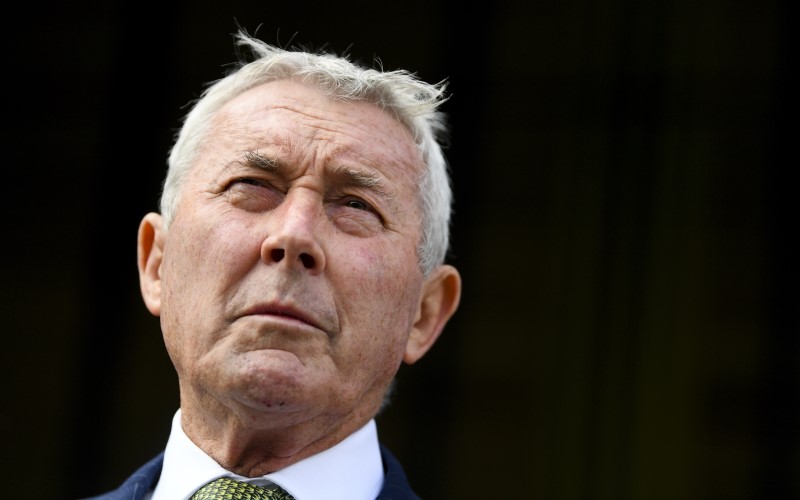
4 December 2021
The contemptible prosecution of Bernard Collaery is an assault on the rule of law
The Coalition's vindictive legal campaign reveals its contempt for democratic rights and shows how easily prosecution can slide into persecution.

1 September 2021
When is a Cabinet not the Cabinet? When the Prime Minister says that it is
Senator Rex Patrick has won the right to access documents from the National Cabinet. Scott Morrison should never have tried to keep them secret.
11 June 2021
Detaining Refugees Indefinitely: The Executive v The Judiciary
Recently, a Federal Court Judge ordered the immediate release of a young man from immigration detention. The man had been in immigration detention for five years. The Federal Government wasn’t happy. It introduced legislation into the Commonwealth Parliament to make sure that no such release could happen again. The Government’s power to detain non-citizens indefinitely was affirmed and strengthened. That was not a good outcome.
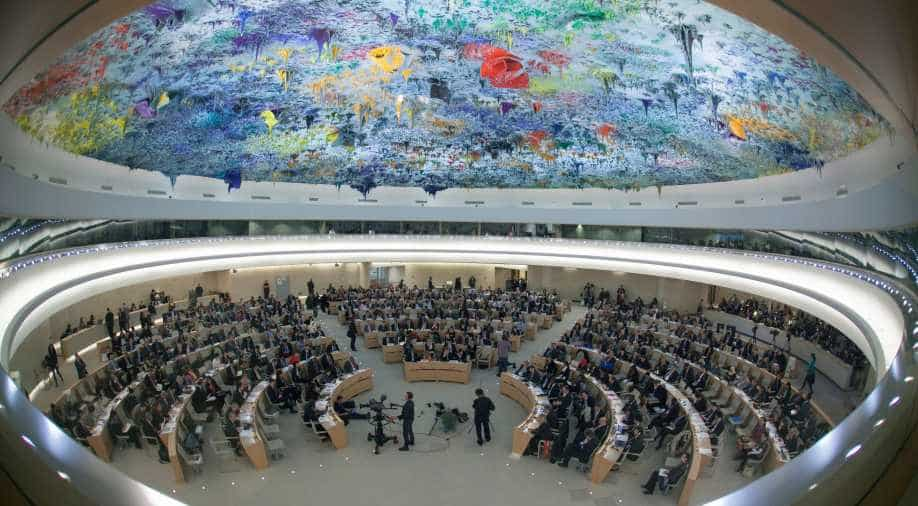
29 March 2021
Australia's human rights failings seriously exposed
Every four years, all member states of the United Nations are required to submit their human rights record for review by the UN Human Rights Council (UNHRC). Australia had its turn in January this year. By any account, Australia’s record with respect to the protection of human rights remains relatively satisfactory. However, the recent interchange that took place between Australia and other member states of the UNHRC disclosed the existence of serious deficits in our protective responsibilities.
18 January 2021
Western governments will have blood on their hands unless they stop persecuting Julian Assange
The case of Wikileaks founder Julian Assange is complex, containing elements of law, freedom of speech and of the media, journalism, politics, international relations and health. In the recent hearing to determine whether Assange should be extradited to the US, health became the dominant discourse. He may die if several Western governments do not stop persecuting him.
11 December 2020
Christian Porter's Federal Integrity Commission is a complete flop
Recently, a team from Transparency International and Griffith University released an important report. The report, Australia’s National Integrity System: A Blueprint for Action, proposed that an entirely new and comprehensive governmental integrity system be developed in Australia. Plainly the report picked up on the fact that public concern with the abuse of public power for private or political gain has been escalating significantly. Instances of governmental corruption have attained a level of crisis federally and in states.
30 October 2020
Susan Ryan. A formidable and compassionate advocate on human rights.
Susan Ryan, the minister for education in the Hawke Government and the pioneer who brought Australia its Sex Discrimination Act, died very recently. This is a remembrance from a friend.
12 October 2020
Witness K and Bernard Collaery: An Unjust Prosecution Gets Even Worse
The prosecution of former ACT Attorney-General, Bernard Collaery, and his client, Witness K, continues to play itself out before the ACT Supreme Court. This is a legal fiasco of the first order. The prosecution should never have commenced.
26 June 2020
Searches, Seizures and Sanctions in Australia's Immigration Detention Camps
A disturbing and distressing new development has occurred in the Commonwealth’s policies with respect to immigration detention. Pursuant to an amendment to the Migration Act (Cth), non-citizens who have committed criminal offences in Australia are now subject, under s.501, to mandatory cancellations of their visas.
28 May 2020
SPENCER ZIFCAK. The New Asio Powers: The Good, the Bad and the Ugly
The Minister for Home Affairs, Peter Dutton, has introduced new, comprehensive powers for ASIO. The Australian Security Intelligence Organisation Amendment Bill 2020 repeals ASIO’s existing questioning and detention warrant framework and introduces a reformed and extended compulsory questioning scheme. The Bill is not all bad. But there is quite enough in it to cause those with a concern for the protection of civil liberties, sleepless nights.
10 September 2019
SPENCER ZIFCAK. The Religious Discrimination Bill
The Religious Discrimination Bill, introduced by the Attorney-General Christian Porter, has its flaws. Nevertheless, it walks a more or less acceptable line between arch proponents and critics of the recent campaign for greater religious freedoms. The Government has produced relatively moderate legislation that mirrors Commonwealth anti-discrimination legislation related to race and sex. In that sense it is familiar and justifiable. Whether it is necessary and appropriate is an entirely different question.
12 July 2019
SPENCER ZIFCAK. Journalists, media freedom and the law.
The Australian Federal Police (AFP) raids on journalists from News Corporation and the ABC have caused very considerable community consternation. The fact that these raids occurred in the immediate aftermath of the recent election and within a day of each other served only to animate public concern. These events have prompted a re-appraisal of the state of media freedom in Australia. The AFP has defended its actions, journalists have been up in arms, media’s management has complained of intimidation, and the government has denied any responsibility. In their own way, each has responded understandably. The basic problem does not lie...
13 March 2019
SPENCER ZIFCAK. The Federal Government Corrodes the Independence of the Administrative Appeals Tribunal
The Federal Government Corrodes the Independence of the Administrative Appeals Tribunal The Commonwealth Administrative Appeals Tribunal (AAT) is a quasi-judicial body designed to promote the rule of law and good government by enabling citizens to call into question the decisions of public sector departments and agencies. The Tribunal reviews government decisions on the merits of questions of law and fact. Its jurisdiction is extensive including, among other things, jurisdiction with respect to migration and refugees, taxation, social security, the NDIS, veterans affairs and freedom of information. Given that the Tribunal may overrule decisions taken within government and substitute its...
22 February 2019
SPENCER ZIFCAK. Offshore Processing: The New Legal Attack.
Two new legal actions designed to put an end to Australia’s policy of offshore processing have just landed at the High Court of Australia. In a novel twist, the cases will not depend on the High Court’s interpretation of the Migration Act. Nor are they constitutionally founded. Instead, the National Justice Project, the law firm representing detainees, is arguing that the Commonwealth has acted negligently. The negligence, it is said, is constituted by crimes against humanity committed by Australian authorities against refugees in the immigration detention camps on Manus Island and Nauru.
24 September 2018
SPENCER ZIFCAK. No Friend But the Mountains’:* Behrouz Boochani’s Extraordinary Narrative Of Life on Manus Island
Behrouz Boochani is an Iranian journalist, writer and refugee. He arrived in Australian waters by boat seeking refuge after a near fatal journey from Indonesia. He never made it to the mainland. Kevin Rudd had shut down access to Australia. Tony Abbott had opened out the desolate encampments on Manus Island and Nauru. Boochani was rescued at sea, transferred to Christmas Island and then flown to Manus. He’s been incarcerated there for more than five years. Thanks to the High Court’s morally indefensible decision in the case of Al-Kateb, he’s slated to remain on the island, isolated and alone, indefinitely.
6 July 2018
The Attorney-General, the ASIS officer and his lawyer: the shameful Timor prosecution
Last week the Attorney-General, Christian Porter, announced that he had approved the prosecution of Witness K, a former ASIS operative and his lawyer, Bernard Collaery, a former Attorney-General of the ACT. They are to be prosecuted for a breach of s.39 of the Intelligence Services Act 2001 (Cth). The prosecution arises out of the involvement of Witness K and Collaery in legal disputation between the governments of Australia and Timor-Leste concerning their respective entitlements to revenues from oil and gas fields located in the Timor Sea.
22 June 2018
SPENCER ZIFCAK. Vigil for Eurydice Dixon
Eurydice Dixon was raped and murdered no more than shouting distance from where I live. Had she screamed I might have heard her cry from across Melbourne Cemetery. But if she did, no one heard her.
4 June 2018
SPENCER ZIFCAK. Are Thousands of Asylum Seekers in Australia About to be Thrown off Income Support?
About two months ago, Peter Dutton’s Department of Home Affairs took a decision that will have momentous consequences. In an initiative, given no publicity, the Minister decided that the substantial majority of asylum seekers awaiting the determination of their applications for refugee status will have their income support terminated.
7 May 2018
SPENCER ZIFCAK. Need an urgent medical transfer from Nauru? Forget it.
The former Commissioner of the Australian Border Force (ABF), Roman Quaedvlieg, made a remarkable admission last week. It occurred in an exchange on Twitter with a former senior medical officer who had worked with refugees on Nauru. In a tweet, Quaedvlieg admitted that during his tenure the ABF had deliberately obstructed and thwarted the transfer of refugee detainees from Nauru to Australia for acute medical treatment.
21 March 2018
SPENCER ZIFCAK. Government Policies globally and the Torture of Refugees
Nils Melzer is the UN Special Rapporteur on Torture and Cruel, Inhuman and Degrading Treatment. Recently, he presented a damning report to the UN Human Rights Council on the subjection of refugees across the world to torture. Melzer’s fundamental contention was this. The primary cause for the massive abuse suffered by refugees globally is neither migration itself nor organized crime. Instead, it is the inexorable trend amongst States to base their official refugee policies on deterrence, detention and criminalization rather than on protection, human rights and non-discrimination. I am a measured person. Reason is my first strategy. But, nevertheless,...
6 November 2017
SPENCER ZIFCAK. Australia elected to UN Human Rights Council - despite international condemnation.
Two weeks ago, Australia was chosen as one of two new member nations on the UN Human Rights Council (HRC). Before one gets too excited about this achievement it is worth noting that our country’s election was uncontested. There were three countries vying for two positions on the HRC - Australia, Spain and France. France dropped out of the race just weeks before the election was due to be held. Spain and Australia, therefore, walked unopposed into the two spots that remained. It was just as well that there was no contested election. This nation’s human rights record is nothing of which...
23 August 2017
SPENCER ZIFCAK. The Trouble with Section 44: the constitutional provision afflicting our Parliament
It’s been quite a month. At least seven members of the Federal Parliament have been referred to the High Court to determine their eligibility to have been elected, and there is a real prospect of an outcome that could cost the Turnbull government its House of Representatives majority. The stakes are very high.
31 July 2017
SPENCER ZIFCAK. What's Wrong with Peter Dutton’s New Super Ministry? The Preparation, the Institution, and the Politician Perhaps?
Peter Dutton is to be given a fiefdom – the new, massive Department of Home Affairs. Peta Credlin responded immediately by saying that the creation of the new department had the ‘stink of a prime minister who’s under pressure and has to be seen as doing something.’ That’s unfair.
28 June 2017
SPENCER ZIFCAK. Three Ministers vs. Three Judges: Executive Government gets Flattened
In Victoria’s Court of Appeal last Friday, an encounter unprecedented in Australian legal and political history played itself out. Through the Commonwealth Solicitor-General (SG) three Commonwealth Government Ministers made an abject apology to the Court.
16 June 2017
SPENCER ZIFCAK. The Black Hearts Behind Australia’s Offshore Detention Policy
So, the Australian Government has settled a class action brought by asylum seekers detained on Manus Island for $70,000,000. Apparently, the settlement was reached because the Government was fearful of the evidence and stories of official abuse that would have emerged over some six months should the action have been litigated in court. Lawyers in the case estimated that more than 70 witnesses would have been called and 200,000 documents examined. Afraid of the findings, the Government caved in at the door of the Court.
27 March 2017
SPENCER ZIFCAK. From Imbroglio to Fiasco: Malcolm Turnbull Loses the Plot on S.18C
The argument about the terms of Sections 18C and 18D of the Commonwealth Racial Discrimination Act (RDA) began with the case brought against the journalist, Andrew Bolt, now some six years ago. The temperature of the debate has risen and fallen during that time, but one aspect of it has remained constant.
12 January 2017
SPENCER ZIFCAK. Robert Manne v Ramesh Thakur v Gillian Triggs: What on Earth is Going On?
If one were ever in this situation, who would one wish to speak for them: George Brandis or Gillian Triggs? That’s the choice.
19 December 2016
SPENCER ZIFCAK. The Federal Government Attacks its Watchers
In recent years, the Federal Government has made an art form of undermining the autonomy of independent statutory offices established to hold it to account. One by one, statutory offices have been subject to forceful governmental and media assaults.
26 October 2016
SPENCER ZIFCAK. Critique of Government's attacks on civil society.
UN Special Rapporteur on Human Rights Defenders’ Scathing Critique of Government’s Attacks on Civil Society In 1998, after 14 years of haggling, the UN General Assembly finally adopted the landmark UN Declaration on Human Rights Defenders. After another 10 years of thinking about it, the Australian government agreed to sign on to the Declaration. The Declaration’s purpose is to promote the work of individuals and civil society organisations which act to protect people’s fundamental human rights and to ensure that in doing so, they themselves do not become the subject of human rights violations. In signing on,...
12 October 2016
SPENCER ZIFCAK. First Law Officer v Second Law Officer: George Brandis and Justin Gleeson in Conflict (Part 2)
In a previous article in these pages (SPENCER ZIFCAK. First Law Officer vs Second Law Officer: George Brandis undermines Justin Gleeson), I set down the core principles at stake in the present conflict between the Commonwealth Attorney-General, George Brandis, and the Commonwealth Solicitor-General, Justin Gleeson. The conflict concerns the extent and limits of the Solicitor-General’s powers to provide high-level legal advice to the Government and to its departments and agencies. More particularly, it relates to the Senator Brandis’ present attempt to introduce a new rule that the Solicitor-General may only provide a legal opinion to a government department or...
7 September 2016
SPENCER ZIFCAK. Freedom of Speech and the Racial Discrimination Act
Within days of the July election result having finally been announced, forces within the Conservative faction of the Liberal-National party moved to re-open the debate on reform to S.18C of the Racial Discrimination Act (RDA). Section 18C makes it a civil offence to insult, offend, humiliate or intimidate a person on the grounds of their race. The Prime Minister has made it clear that he is not interested in pursuing the matter. Sensibly, he does not want to re-open the damaging schism that occurred when hostilities on the issue broke out following the Federal Court’s 2011 judgment against the...
11 August 2016
SPENCER ZIFCAK. Counter-terrorism and human rights.
I am presently in Paris. Along with many other countries, France faces a terrorism threat. France is grappling with the problem of how democracies can best handle threats of terrorism. In light of that I am reposting an earlier article from the Policy Series, by Spencer Zifcak, on human rights and combatting terrorism. John Menadue Do Human Rights Fit or Should We Just Forget About Them? Hard upon the ascent of violent terrorism in the Middle East, Africa and elsewhere, and Australia’s first experience of terrorist crime in Martin Place, the Australian Government has been active in bringing...
12 July 2016
SPENCER ZIFCAK. Chilcot: The War and the Law
As is now well known, the Chilcot Report on the British Government’s planning, execution and aftermath of the Iraq war provided a scathing critique of almost every aspect of the Prime Minister’s and government’s conduct. There is one facet of this deplorable episode that has not yet received any adequate consideration in the Australian media. This concerns the politicisation of the process that led to the UK Government’s conclusion that the war was lawful.
24 June 2016
SPENCER ZIFCAK. First Law Officer vs Second Law Officer: George Brandis Undermines Justin Gleeson (Part 1)
It has become a regrettable pattern in the legal world for Attorney-General, George Brandis, to seek to undermine holders of independent legal offices with whom he has disagreed. One thinks back only a year, to recall his vociferous attack on Gillian Triggs, the President of the Australian Human Rights Commission. This attack followed from the Commission’s release of an extensively researched report on the severe ill-treatment of children in Australia’s offshore refugee detention centres. The findings were damning. Brandis accused Triggs of bias and then had his head of department offer her a senior position in some other less...
21 May 2016
SPENCER ZIFCAK. PNG Supreme Court Trumps Detention on Manus Island and Australia’s High Court too. It is regrettable that Australia does not have a similar Bill of Human Rights
In the latest legal saga to beset the Government’s troubled offshore processing program, the Supreme Court of Papua New Guinea declared that the mandatory detention of asylum seekers from Australia on Manus Island was unconstitutional. The Court held that the detention of some 900 men on Manus violated the right to liberty guaranteed by PNG’s Constitution. A closer look at the decision discloses just how far the Australian and PNG governments have been prepared to go in conspiring to keep asylum seekers, travelling by boat to Australia, out of the country and incarcerated indefinitely offshore.
24 February 2016
Spencer Zifcak. Special Envoy on Human Rights. Ruddock. What?
In 2003, I wrote a short book entitled Mr Ruddock Goes to Geneva. The book was not as superficial as its title might have suggested. It was in fact a serious study of Australia’s vexed relationship with the UN Human Rights Treaty System. My argument was that the Howard Government should have given the recommendations from UN Human Rights Treaty bodies about ways in which Australia could improve its observance of human rights more thoughtful consideration. Instead, the Government had adopted the habit of rejecting any criticism of its human rights record out of hand. This came at the...
22 December 2015
Spencer Zifcak. Co-opting the Judiciary: Counter-Terrorism Laws at Work
Regrettably, one matter that has drifted to the sidelines in Australian debates about the operation of counter-terrorism laws is that these laws consistently marginalise and undermine the role of the judiciary. Judicial power, and hence the rule of law, is being incrementally distorted and diminished. Counter-terrorism law continues to burst from the executive and the legislature. Just a few months ago, three enormous tranches of such law swept through the parliament. These were the National Security Legislation (Amendment) Act protecting and preventing disclosure of information about special intelligence operations; the Foreign Fighters Act; and the metadata legislation. (See my...
27 November 2015
Spencer Zifcak. UN Human Rights Council Weighs in on Australia
On 21st of March 2000, an Australian delegation appeared before the UN Committee on the Elimination of all Forms of Racial Discrimination (CERD) in Geneva. The Hon Philip Ruddock, then Minister for Immigration in the Howard Government, led the delegation. The meeting did not go well. Confronted by exceptionally well-informed and assertive questioning by the Committee’s rapporteur, the Minister became condescending and defensive. His justifications for Australian policies, particularly in relation to Australia’s indigenous peoples, fell apart. Their health, education and social disadvantages, he implied, were the result of lifestyle choices. Nothing could be done about mandatory sentencing...
5 October 2015
Spencer Zifcak. Human rights inquiry and a Charter of Rights!
Tony Abbott and George Brandis always used strong rhetoric about the necessity to protect Australians’ traditional rights and freedoms. The reality under the Abbott government, however, was different. The rights of minority racial, religious, ethnic, refugee and environmental groups were relentlessly pared back. Those who stood up for human rights, like the President of the Australian Human Rights Commission, Gillian Triggs, and various UN Human Rights Rapporteurs, were shot when they conveyed their critical message. Nevertheless, it may yet be that the former Prime Minister and his Attorney-General will deliver to Australians a profoundly beneficial legacy with respect to...
28 May 2015
Spencer Zifcak. Counter-Terrorism and Human Rights.
Fairness, Opportunity and Security. Policy series edited by Michael Keating and John Menadue. Do Human Rights Fit or Should We Just Forget About Them? Hard upon the ascent of violent terrorism in the Middle East, Africa and elsewhere, and Australia’s first experience of terrorist crime in Martin Place, the Australian Government has been active in bringing forward new legislation designed to prevent and punish terrorist crime. There can be no quarrel with that. Nevertheless, the draconian nature of the new laws has caused alarm amongst many concerned with the protection of individual rights and freedoms. One of...
Showing 50 of 53 articles
